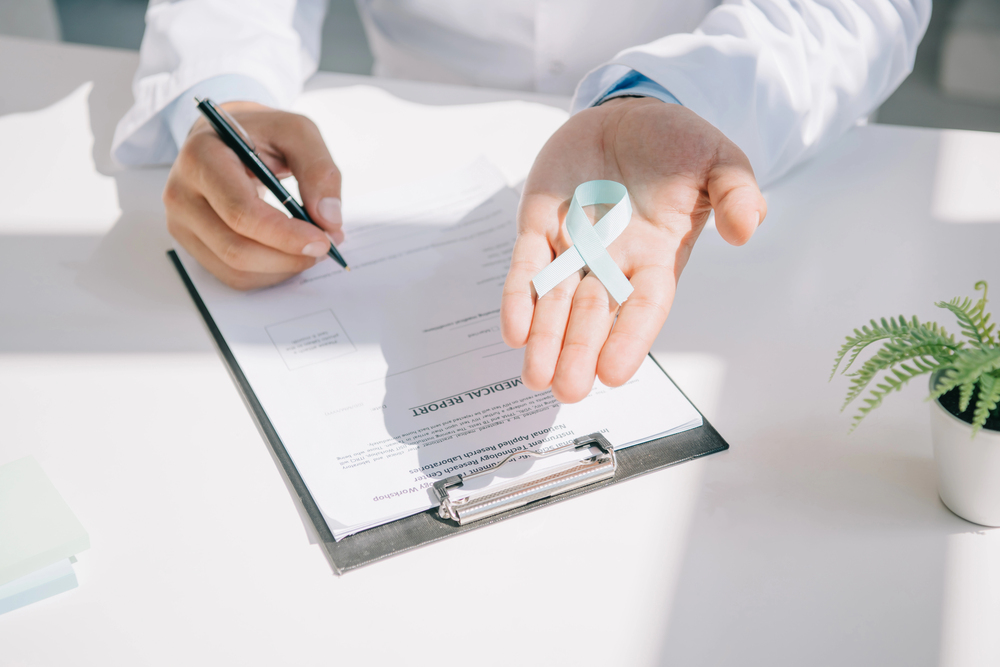What You Need to Know About Prostate Disorders
Talking about prostate disorders isn’t the most comfortable conversation. But it is an essential one.
As men age, they become more prone to prostate disorders that can seriously inhibit quality of life. Being a rather intimate situation, men may put up with the symptoms rather than deal with the issue. This is no way to live, especially if the problem becomes dangerous. Having your prostate checked on a yearly basis may not be on your priority list, but it just might save your life.
The Prostate
First thing’s first: what is the prostate? It is a walnut-sized gland found only in men, as its purpose is to make fluid for semen. Located just below the bladder, it surrounds the urethra. The prostate typically grows throughout a man’s life, beginning at puberty. While the growth is normal, it can cause some problems down the road.
The Disorders
The most common prostate disorders include:
- Benign Prostatic Hyperplasia (BPH)
BPH is the fancy name for an enlarged prostate. As its name suggests, it is a non-cancerous disorder but it does present similar symptoms to prostate cancer. When your prostate is enlarged, it inhibits the ability to fully empty your bladder. As a result, the urge to urinate is much more frequent, even waking you in the night. You may feel you have to go again before you even leave the restroom.
Because the symptoms for BPH are nearly identical to those of prostate cancer, it’s essential that you visit your urologist should you experience any of these symptoms:
- Frequent urination, much more often than your normal.
- Urgent need to urinate that comes on quickly.
- The need to get up multiple times in the night for a bathroom run.
- Struggling to begin the urine stream.
2. Prostatitis
Prostatitis refers to the inflammation of the prostate. It can develop quickly and is recognizable by the resulting pain and flu-like symptoms. The pain can present itself almost anywhere related to the urinary tract including the groin, pelvis, testicles, and lower back. Painful urination or ejaculations are also common symptoms.
If flu-like symptoms are present, it’s likely a bacterial infection that can be treated with an antibiotic. There are situations when the prostate simply needs time to heal on its own. But that’s something you need to discuss with your urologist, as serious complications could occur with prostatitis. Prostatitis can also look a lot like prostate cancer, again making it essential to get your prostate checked right away.
3. Prostate Cancer
Prostate cancer is the most common cancer among men. Early screening can catch this cancer before any symptoms are presented, which is the ideal situation. In the early stages, cancer typically stays within the prostate where the harm is minimal. Some types of prostate cancer grow slowly while others can be very aggressive. If you notice any of the signs or symptoms of BPH or prostatitis, be sure to have a cancer screening done to rule out this dangerous prostate disorder.
In addition to the common prostate disorder symptoms, prostate cancer could cause:
- Erectile dysfunction
- Blood in semen
- Weak urine stream
- Trouble urinating
- Bone pain
- Discomfort in the pelvic area

The Risks
There are a number of risk factors that may increase your chances of developing a prostate disorder. Most of these factors are unavoidable, so use them as motivation to set up an appointment with a urologist and stay ahead of any future problems!
Gender – Women do not have a prostate, but all men have the potential to develop a prostate disorder at some point in their lives.
Age – Prostate issues can occur at any point in a man’s life, but they’re most common in men over the age of 50 and especially over 65.
Race/ethnicity – Black men are at a higher risk than other races, and in the case of prostate cancer, it tends to be more aggressive.
History – Prostate cancer runs in the family about 20% of the time.
Obesity – While there isn’t definitive proof that diet has a direct impact on cancer risk, there tends to be a link between obesity and cancer.
The Solution
Identifying and treating prostate disorders is a job for a urologist. And the best urologists for the job are the Urology Associates of South Bend. Early detection and treatment of any type of urinary tract issue increases the potential for a positive outcome. Don’t wait another day to set up an appointment with one of our highly skilled and knowledgeable associates!
Request an Appointment
Address:
6301 University Commons, Suite 350
South Bend, IN 46635
Phone:
(574) 234-4100
Fax:
(574) 282-1739
